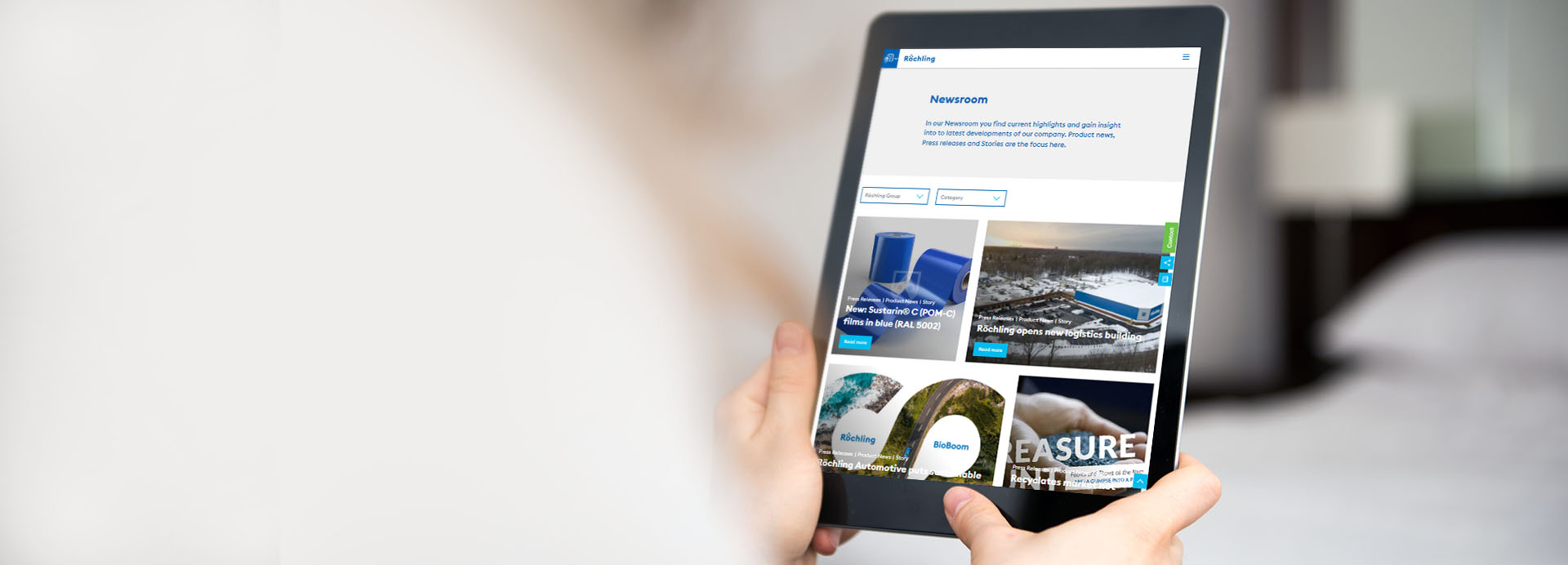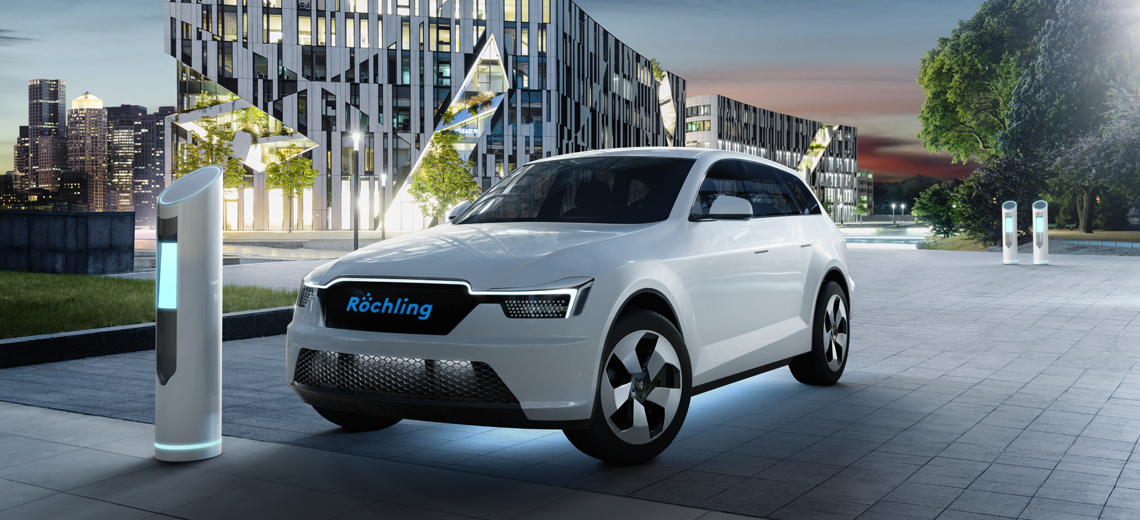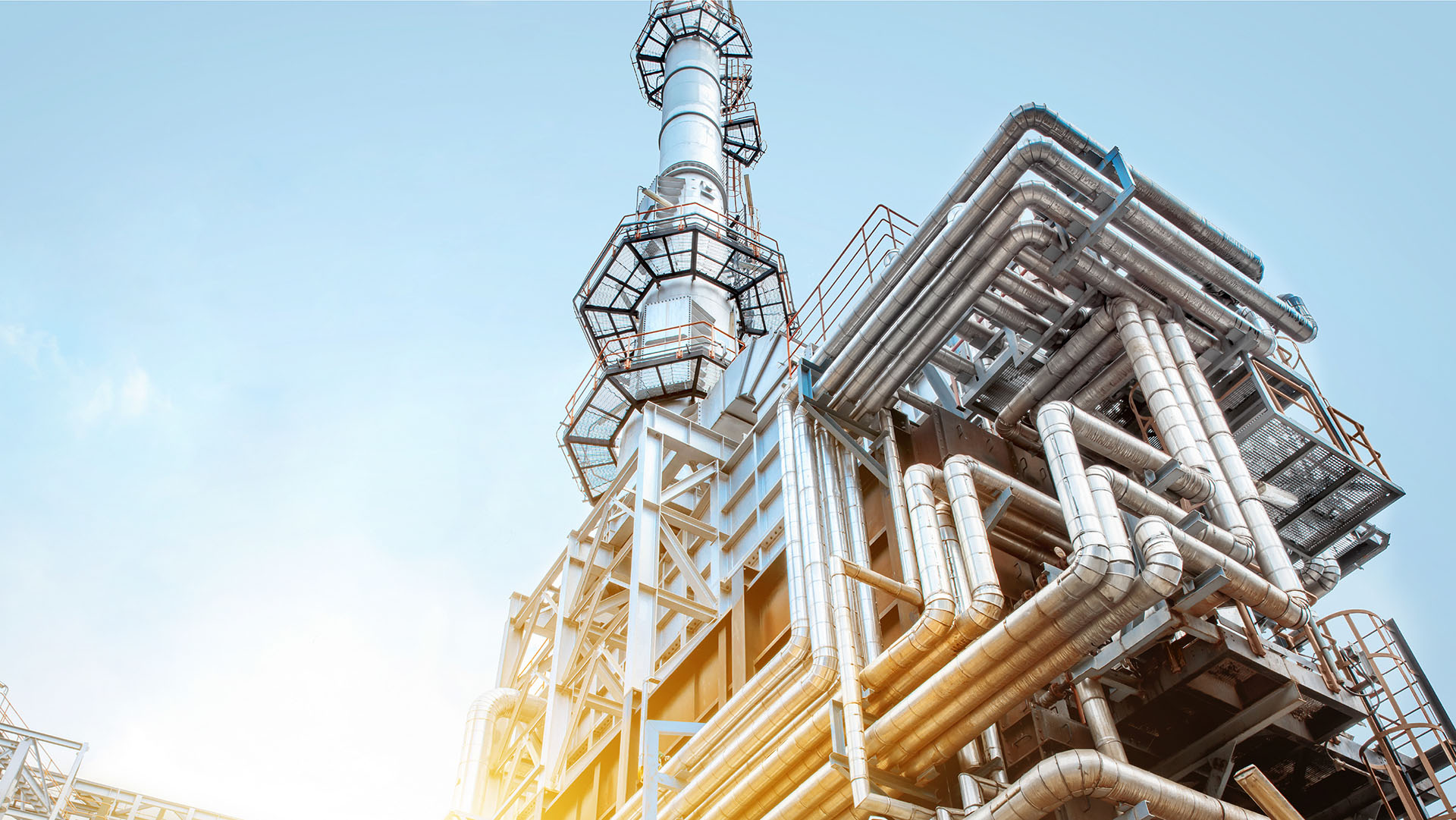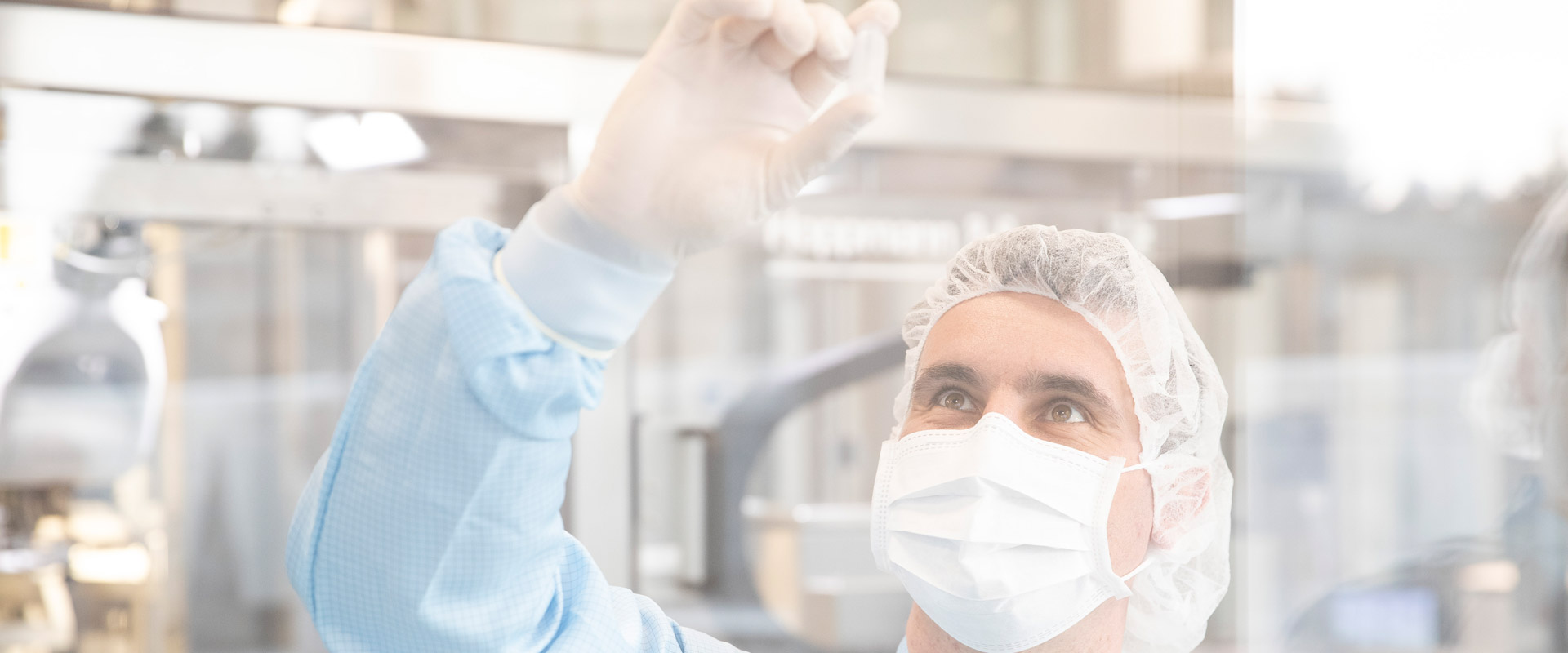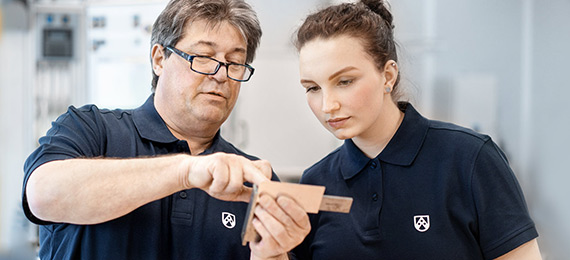Materials for efficient and reliable plants for the wet-chemical surface treatment of wafers
High operational safety and performance
If the sun is shining, it’s already a good day for Karsten Robel from a professional standpoint. Sun means energy. More and more solar power plants are being commissioned worldwide. Providers are competing for market shares. Companies are developing increasingly efficient technologies.
That’s what Karsten Robel does. At his plant in Nowogrodziec, Poland, RENA POLSKA manufactures complex plants for the wet-chemical surface treatment of wafers for customers worldwide. In other words, his work contributes to further increase the efficiency of the key element of every solar plant: the solar cell.
The RENA machines clean, etch and dry wafers with wet-chemical processes. The wafers, razor-thin discs of silicon, are the raw material for solar cells. The RENA plants form a surface on the wafers that is able to capture as much light as possible. As a result, efficient machines from RENA mean efficient solar plants.
But the demands on Karsten Robel and his team are high: “We feel that global demand for solar modules is increasing tremendously.” This is both an opportunity and a challenge. The order books are filling up and capacities are growing. It’s a major chance to develop the market position. But it can only succeed if all the customers’ requirements are met. And in a growth market, they expect increasingly efficient technology.
“Röchling offers a large selection of chemical-resistant and temperature-resistant materials, along with a lot of application expertise. This portfolio gives us a great deal of flexibility.”
Karsten Robel, Managing Director, RENA Polska Sp. z o.o. in Nowogrodziec
The plant standards of tomorrow
Since the early days of solar cell production, RENA has manufactured process solutions for surface treatment. This experience has made RENA one of the largest providers of process technology for wet-chemical applications for the solar industry and semiconductor, glass and medical technology. “We draw on our experience to develop the global plant standards of tomorrow. We meet the challenges with the right process and automation solutions and develop higher and higher efficiency classes”, reports Robel.
Aggressive chemicals
He and his team must consider two main factors when designing the plants: The types of chemicals that are used and the prevailing operating temperature during the process. RENA‘s customers use chemicals for the etching process, such as potassium hydroxide (KOH), sodium hydroxide (NaOH) – i.e. alkaline chemicals in high concentrations; hydrofluoric acid (HF), hydrochloric acid (HCl) – i.e. acidic chemicals in low concentrations. The permanent operating temperature is 80 – 85 °C.

High requirements
Customers must be able to count on the reliability and operational safety of the plants at all times. Robel: “An accident involving aggressive chemicals would be catastrophic. As a market and technology leader, we impose the highest requirements on our plants. Part of our strategy involves the rigorous selection of competent suppliers.”
Cooperation
For years, RENA has used Röchling materials such as Polystone® P Homopolymer (PP-H), Polystone® PPs (PPs), Polystone® PVDF and Trovidur® (PVC) in the production of wet-chemical process plants. Components such as underbodies, housings and tanks are made from these materials. Karsten Robel: “Röchling offers a large selection of chemical-resistant and temperature-resistant materials, along with a lot of application expertise. This portfolio gives us a great deal of flexibility, which enables us to develop efficient and reliable plants for a variety of applications.”
“Different plants require different combinations of chemical resistance and temperature resistance. That’s why we do everything in close coordination with RENA.”
Jan Michalíček, Technical Marketing at Röchling in Planá nad Lužnicí, Czech Republic
Site visits
Site visits by RENA are an important aspect of the close cooperation between the companies. Jan Michalíček, Technical Marketing at Röchling in Planá nad Lužnicí, Czech Republic, discusses requirements and new projects with Karsten Robel. As he explains, “Different plants require different combinations of chemical resistance and temperature resistance. That’s why we do everything in close coordination with RENA.” At the RENA headquarters in Gütenbach, Germany, where the plants are primarily developed, inquiries are made on a regular basis about the right raw material for chemicals.
Training
For that reason, training is also part of the partnership. “We train RENA employees regularly and invite their engineers to our location in Haren, Germany, where we go into the properties and processing options of our plastics. We are glad that we can support RENA so intensively with our experience”, says Michalíček. For Robel, a close partnership like this is crucial for playing an active role in facing the challenges of the solar industry. “Partners like Röchling enable us to react flexibly to new requirements, so that we can create the global standards of tomorrow.”
Project overview
Plants for the wet-chemical surface treatment of wafers
Initial situation
Production of plants for the wet-chemical treatment of wafers for solar cells Requirements
- High resistance to the chemicals used in the processes
- High resistance to continuous operating temperatures of 80 °C – 85 °C
- Easy processing
Material used
- Polystone® P Homopolymer grey (PP-H)
- Polystone® PPs (PPs)
- Polystone® PVDF (PVDF)
- Trovidur® (PVC)
Result
Reliable, efficient plants with a high level of operational safety for various requirements
Please find more information about our plastics for chemical tank construction on our industry site "Plastics for the chemical processing industry"


